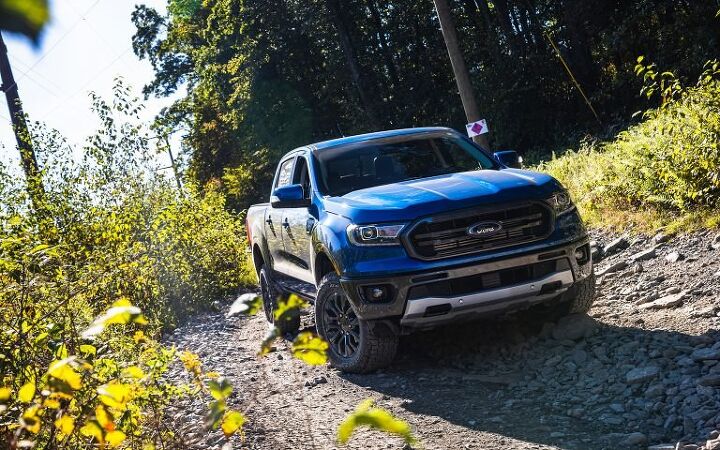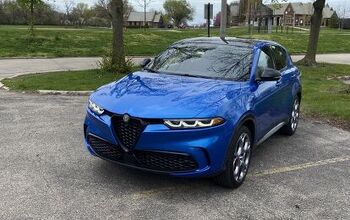Ford and Volkswagen Nuzzle Up Even Closer, Reveal Joint Product Push Details

Wednesday brought an expanded alliance between Ford Motor Company and Volkswagen, with the two auto giants inking a deal for the joint development and construction of a range of products.
Since last year’s tie-up, the desire among the two companies to use each other’s strengths to address gaps in the market has been well known, though today brought specifics.
The Euro-centric plan (Ford claims “other regions” will benefit from new joint products, too) will begin bearing fruit in short order.
Detailed today, the long-in-the-tooth VW Amarok midsize pickup will remain on the market in name only, with the actual vehicle reverting to a new product based on Ford’s Ranger, the two companies said. Entering the Volkswagen Commercial Vehicles lineup in 2022, the vehicle will be developed and built by Ford.
Next year could also see the launch of a small Ford van based on the VW Caddy and built by Volkswagen Commercial Vehicles, while the German half of the relationship will see a 1-ton commercial van created by Ford. The Blue Oval already cleans up in this class with its versatile Transit.
Next up is a Ford electric vehicle that should arrive for European customers by 2023. Based on VW’s dedicated MEB architecture, the “highly differentiated” EV will help Ford gain ground in that region’s growing zero-emission vehicle market. Ford’s Cologne-Merkenich facility is tapped for this product, which the automaker claims could see sales of 600,000 vehicles over its lifespan.
“During the lifecycles of the products, the companies expect to produce up to a combined 8 million of the medium pickup truck and both commercial vans included in the commercial relationships,” Ford and VW said in a joint statement.
VW Group CEO Herbert Diess said the coronavirus pandemic has showed the need for “strong” companies to forge “resilient” alliances.
“This collaboration will efficiently drive down development costs, allowing broader global distribution of electric and commercial vehicles, and enhance the positions of both companies,” Diess said.
Ford CEO Jim Hackett called it a “huge opportunity to innovate and solve many of the world’s transportation challenges and deliver extraordinary benefits to customers – even as companies need to be selective about how they use their cash.”
Thanks to billions of dollars in funding between the two of them, the companies also plan to develop “distinct, highly capable autonomous-vehicle businesses” using self-driving tech developed by U.S. startup Argo AI.
[Image: Ford]

More by Steph Willems
Latest Car Reviews
Read moreLatest Product Reviews
Read moreRecent Comments
- SCE to AUX Fisker filed for reorganization in Austria - the end is near.https://insideevs.com/news/718875/fisker-reorganization-austria/
- Bd2 I'll watch F1 when Kia and/or Hyundai pony (pun intended) up the cash to field a class leading team. Hyundai is leading many series with the Elantra N with it's incredible 350HP Smartstream-N engine.
- MaintenanceCosts More or less an admission that the radar-only cars will never do anything that could reasonably be marketed as "Full Self-Driving."
- Bd2 The coolest true SUV on the market. Change my mind.
- VoGhost Fettle, racket, wade, throne -- what's going on with Matthew?


































Comments
Join the conversation
VW does not want to integrate toxic company culture from Ford. Culture wars at merged company may bring both of them down. Just look what happened with Renault-Nissan alliance. And they did not even merge yet, and never will. Article only mentions cooperation in developing some products to save money.
I don't see anything that says they are getting closer, they just released more details about the already announced projects. Ford is giving VW a small truck and a large van to slap a badge on while Ford will slap a badge on a VW small van. Ford will also use the VW EV platform for a euro offering.